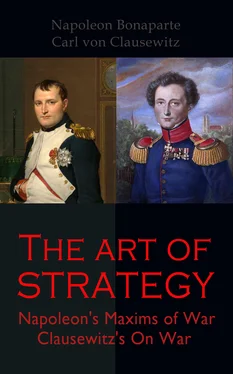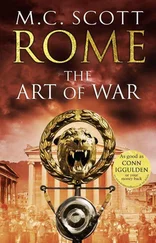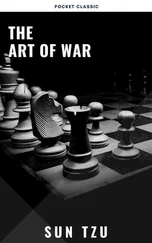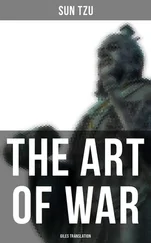Table of Contents
The distances permitted between corps of an army upon the march must be governed by the localities, by circumstances, and by the object in view.
When an army moves at a distance from the enemy, the columns may be disposed along the road so as to favor the artillery and baggage. But when it is marching into action, the different corps must be formed in close columns in order of battle. The generals must take care that the heads of the columns, which are to attack together, do not outstep each other, and that in approaching the field of action they preserve the relative intervals required for deployment.
“The marches that are made preparatory to a battle require,” says Frederick, “the greatest precaution.” With this view, he recommends his generals to be particularly on their guard, and to reconnoitre the ground at successive distances, in order to secure the initiative by occupying those positions most calculated to favor an attack. On a retreat, it is the opinion of many generals that an army should concentrate its forces, and march in close columns if it is still strong enough to resume the offensive; for by this means it is easy to form the line when a favorable opportunity presents itself, either for holding the enemy in check or for attacking him if he is not in a situation to accept battle.
Such was Moreau’s retreat after the passage of the Adda by the Austro-Russian army. The French general, after having covered the evacuation of Milan, took up a position between the Po and the Tanaro.
His camp rested upon Alexandria and Valentia, two capital fortresses, and had the advantage of covering the roads to Turin and Savona, by which he could effect his retreat in case he was unable to accomplish a junction with the corps d’armee of Macdonald, who had been ordered to quit the kingdom of Naples, and hasten his march into Tuscany.
Forced to abandon his position in consequence of the insurrection in Piedmont and Tuscany, Moreau retired upon Asti, where he learned that his communication with the river of Genoa had just been cut off by the capture of Ceva. After several ineffectual attempts to retake this place, he saw that his only safety depended upon throwing himself into the mountains.
To effect this object, he directed the whole of his battering train and heavy baggage by the Col de Fenestrelle upon France; then opening himself a way over the St. Bernard, he gained Loano with his light artillery and the small proportion of field equipment he had been able to preserve.
By this skilful movement, he not only retained his communications with France, but was enabled to observe the motions of the army from Naples, and to facilitate his junction with it by directing the whole of his force upon the points necessary for that purpose.
Macdonald, in the meantime, whose only chance of success depended on concentrating his little army, neglected this precaution, and was beaten in three successive actions at the Trebia.
By this retardment of his march, he rendered all Moreau’s measures to unite the two armies in the plains of the Po useless, and his retreat, after his brilliant but fruitless efforts at the Trebia, defeated the other arrangements, also, which the former had made to come to his support. The inactivity of Marshal Suwarrow, however, finally enabled the French general to accomplish his junction with the remains of the army from Naples. Moreau then concentrated his whole force upon the Appenines, and placed himself in a situation to defend the important positions of Liguria, until the chances of war should afford him an opportunity of resuming the offensive.
When, after a decisive battle, an army has lost its artillery and equipments, and is consequently no longer in a state to assume the offensive, or even to arrest the pursuit of the enemy, it would seem most desirable to divide what remains into several corps, and order them to march by separate and distant routes upon the base of operation, and throw themselves into the fortresses. This is the only means of safety: for the enemy, uncertain as to the precise direction taken by the vanquished army, is ignorant in the first instance which corps to pursue, and it is in this moment of indecision that a march is gained upon him. Besides, the movements of a small body being so much easier than those of a larger one, these separate lines of march are all in favor of a retreating army.
Table of Contents
Among mountains, a great number of positions are always to be found very strong in themselves, and which it is dangerous to attack. The character of this mode of warfare consists in occupying camps on the flanks or in the rear of the enemy, leaving him only the alternative of abandoning his position without fighting, to take up another in the rear, or to descend from it in order to attack you. In mountain warfare, the assailant has always the disadvantage; even in offensive warfare in the open field, the great secret consists in defensive combats, and in obliging the enemy to attack.
During the campaign of 1793, in the Maritime Alps, the French army, under the orders of General Brunet, did all in its power to get possession of the camps at Raus and at Fourches, by an attack in front. But these useless efforts served only to increase the courage of the Piedmontese, and to destroy the élite of the grenadiers of the republican army. The manœuvres by which Napoleon, without fighting, compelled the enemy to evacuate these positions in 1796, suffice to establish the truth of these principles, and to prove how much success in war depends upon the genius of the general as well as on the courage of the soldier.
Table of Contents
The first consideration with a general who offers battle, should be the glory and honor of his arms; the safety and preservation of his men is only the second; but it is in the enterprise and courage resulting from the former, that the latter will most assuredly be found. In a retreat, besides the honor of the army, the loss of life is often greater than in two battles. For this reason, we should never despair while brave men are to be found with their colors. It is by this means that we obtain victory, and deserve to obtain it.
In 1645, the French army, under the orders of the Prince of Condé, was on the march to lay siege to Nordlingen, when it was discovered that Count Merci, who commanded the Bavarians, had foreseen this intention, and had entrenched himself in a strong position which defended Nordlingen at the same time that it covered Donawerth.
Notwithstanding the favorable position of the enemy, Condé ordered the attack. The combat was terrible. All the infantry in the centre and on the right, after being successively engaged, was routed and dispersed, in spite of the efforts of the cavalry and the reserve, which were likewise carried away with the fugitives. The battle was lost. Condé, in despair, having no longer either centre or right to depend upon, collected the remnants of his battalions, and directed his march to the left, where Turenne was still engaged. This perseverance reanimated the ardor of the troops. They broke the right wing of the enemy, and Turenne, by a change of front, returned to the attack upon his centre. Night, too, favored the boldness of Condé. An entire corps of Bavarians, fancying themselves cut off, laid down their arms; and the obstinacy of the French general in this struggle for victory was repaid by possession of the field of battle, together with a great number of prisoners, and almost all the enemy’s artillery. The Bavarian army beat a retreat, and the next day Nordlingen capitulated.
Читать дальше












